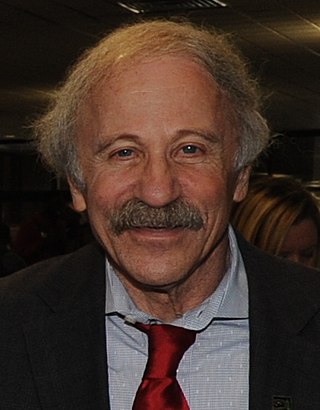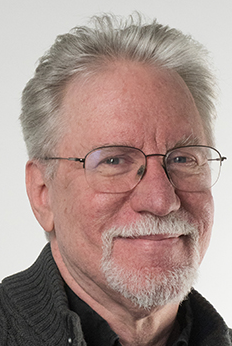
Rhetoric is the art of persuasion. It is one of the three ancient arts of discourse (trivium) along with grammar and logic/dialectic. As an academic discipline within the humanities, rhetoric aims to study the techniques that speakers or writers use to inform, persuade, and motivate their audiences. Rhetoric also provides heuristics for understanding, discovering, and developing arguments for particular situations.

Digital rhetoric can be generally defined as communication that exists in the digital sphere. As such, digital rhetoric can be expressed in many different forms, including text, images, videos, and software. Due to the increasingly mediated nature of our contemporary society, there are no longer clear distinctions between digital and non-digital environments. This has expanded the scope of digital rhetoric to account for the increased fluidity with which humans interact with technology.
Karlyn Kohrs Campbell is an American academic specializing in rhetorical criticism at the University of Minnesota.
James A. Berlin was an American scholar, professor, writer, and theorist in the field of composition studies, renowned for his contributions to the history of rhetoric and composition theory.
John Louis Lucaites is an American academic. He is a professor emeritus of rhetoric and public culture at Indiana University. In 2012, Lucaites was appointed as associate dean for arts and humanities and undergraduate education at Indiana University. His research concerns the general relationship between rhetoric and social theory, and seeks to contribute in particular to the critique and reconstruction of liberalism in contemporary social, political, and cultural practices in the United States.

Richard Eugene Vatz is an American academic, lecturer and writer who is a professor of Rhetoric and Communication at Towson University.
Feminist theory in composition studies examines how gender, language, and cultural studies affect the teaching and practice of writing. It challenges the traditional assumptions and methods of composition studies and proposes alternative approaches that are informed by feminist perspectives. Feminist theory in composition studies covers a range of topics, such as the history and development of women’s writing, the role of gender in rhetorical situations, the representation and identity of writers, and the pedagogical implications of feminist theory for writing instruction. Feminist theory in composition studies also explores how writing can be used as a tool for empowerment, resistance, and social change. Feminist theory in composition studies emerged in the late 1960s and early 1970s as a response to the male-dominated field of composition and rhetoric. It has been influenced by various feminist movements and disciplines, such as second-wave feminism, poststructuralism, psychoanalysis, critical race theory, and queer theory. Feminist theory in composition studies has contributed to the revision of traditional rhetorical concepts, the recognition of diverse voices and genres, the promotion of collaborative and ethical communication, and the integration of personal and political issues in writing.
The Rhetoric Society of America (RSA) is an academic organization for the study of rhetoric.

Rhetoric of therapy is a concept coined by American academic Dana L. Cloud to describe "a set of political and cultural discourses that have adopted psychotherapy's lexicon—the conservative language of healing, coping, adaptation, and restoration of previously existing order—but in contexts of social and political conflict".
Diane Davis is a post-structuralist rhetorician and professor of Rhetoric and Writing, English, and Communication Studies at the University of Texas at Austin. She was the Director of the Digital Writing and Research Lab at UT from 2009 to 2017, and is now the chair of the Department of Rhetoric and Writing. She holds the Kenneth Burke Chair of Rhetoric and Philosophy at the European Graduate School in Saas-Fee, Switzerland, where she teaches intensive summer seminars on Jacques Derrida and Emmanuel Levinas.

Anthony Edward Schiappa, Jr. is an American scholar of communication and rhetoric, currently Professor of Comparative Media Studies/Writing at the Massachusetts Institute of Technology, where he holds the John E. Burchard Chair of Humanities; from 2013 to 2019, he also served as the program's Head. Previously, he spent seventeen years in the Communication Studies Department at the University of Minnesota, the last seven of which he served as chair. He is the author of eight books and numerous articles that have appeared in classics, communication, English/Composition, philosophy, psychology, and law journals.
Karma R. Chávez is a rhetorical critic who utilizes textual and field-based methods and studies the rhetorical practices of people marginalized within existing power structures. She has published numerous scholarly articles and books, including Queer Migration Politics: Activist Rhetoric and Coalitional Possibilities, as well as co-founding the Queer Migration Research Network. She works with social justice organizations and her scholarship is informed by queer of color theory, women of color feminism, poststructuralism, and cultural studies.
Susan Zaeske is Professor of Rhetoric and Public Culture in the Department of Communication Arts and Arts and was formerly Associate Dean for Arts and Humanities in the College of Letters & Science at the University of Wisconsin-Madison.
Karen A. Foss is a rhetorical scholar and educator in the discipline of communication. Her research and teaching interests include contemporary rhetorical theory and criticism, feminist perspectives on communication, the incorporation of marginalized voices into rhetorical theory and practice, and the reconceptualization of communication theories and constructs.
Sonja K. Foss is a rhetorical scholar and educator in the discipline of communication. Her research and teaching interests are in contemporary rhetorical theory and criticism, feminist perspectives on communication, the incorporation of marginalized voices into rhetorical theory and practice, and visual rhetoric.
Elaine B. Richardson, professionally known as Dr. E, is a professor of Literacy Studies, Department of Teaching and Learning at Ohio State University who is also known as an author, lecturer, performer, and singer and songwriter.

Feminist rhetoric emphasizes the narratives of all demographics, including women and other marginalized groups, into the consideration or practice of rhetoric. Feminist rhetoric does not focus exclusively on the rhetoric of women or feminists, but instead prioritizes the feminist principles of inclusivity, community, and equality over the classic, patriarchal model of persuasion that ultimately separates people from their own experience. Seen as the act of producing or the study of feminist discourses, feminist rhetoric emphasizes and supports the lived experiences and histories of all human beings in all manner of experiences. It also redefines traditional delivery sites to include non-traditional locations such as demonstrations, letter writing, and digital processes, and alternative practices such as rhetorical listening and productive silence. According to author and rhetorical feminist Cheryl Glenn in her book Rhetorical Feminism and This Thing Called Hope (2018), "rhetorical feminism is a set of tactics that multiplies rhetorical opportunities in terms of who counts as a rhetor, who can inhabit an audience, and what those audiences can do." Rhetorical feminism is a strategy that counters traditional forms of rhetoric, favoring dialogue over monologue and seeking to redefine the way audiences view rhetorical appeals.

Jennifer Mercieca is an American scholar of rhetoric. She is a professor of communication at Texas A&M University. She has written about the rhetorical style of Donald Trump, and the founding narratives that informed the political culture of the United States.
Janice M. Lauer Rice was an American scholar of composition, rhetoric, and linguistics. She was a founding member of the Rhetoric Society of America. She founded one of the first doctoral programs in rhetoric and composition at Purdue University in 1980. The Lauer Series in Rhetoric and Composition from Parlor Press is named in her honor, as well as the Rhetoric Society of America's Janice Lauer Fund for Graduate Student Support and the Purdue Foundation Janice M. Lauer Dissertation Award.





